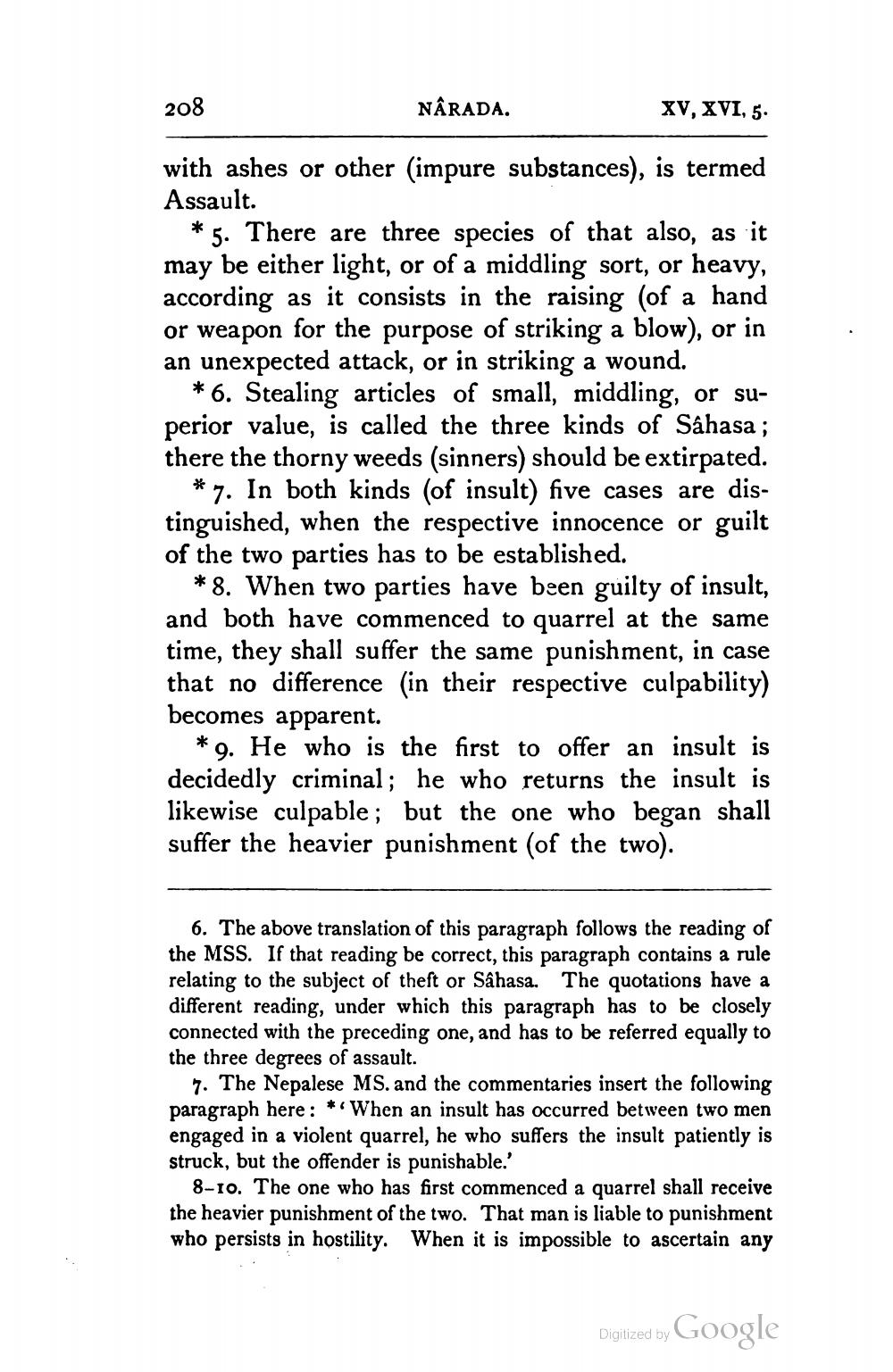________________
208
NÂRADA.
XV, XVI, 5.
with ashes or other (impure substances), is termed Assault.
* 5. There are three species of that also, as it may be either light, or of a middling sort, or heavy, according as it consists in the raising (of a hand or weapon for the purpose of striking a blow), or in an unexpected attack, or in striking a wound.
*6. Stealing articles of small, middling, or superior value, is called the three kinds of Sahasa ; there the thorny weeds (sinners) should be extirpated.
*7. In both kinds (of insult) five cases are distinguished, when the respective innocence or guilt of the two parties has to be established.
*8. When two parties have been guilty of insult, and both have commenced to quarrel at the same time, they shall suffer the same punishment, in case that no difference (in their respective culpability) becomes apparent.
*9. He who is the first to offer an insult is decidedly criminal; he who returns the insult is likewise culpable; but the one who began shall suffer the heavier punishment (of the two).
6. The above translation of this paragraph follows the reading of the MSS. If that reading be correct, this paragraph contains a rule relating to the subject of theft or Sahasa. The quotations have a different reading, under which this paragraph has to be closely connected with the preceding one, and has to be referred equally to the three degrees of assault.
7. The Nepalese MS. and the commentaries insert the following paragraph here: * When an insult has occurred between two men engaged in a violent quarrel, he who suffers the insult patiently is struck, but the offender is punishable.'
8-10. The one who has first commenced a quarrel shall receive the heavier punishment of the two. That man is liable to punishment who persists in hostility. When it is impossible to ascertain any
Digitized by Google




